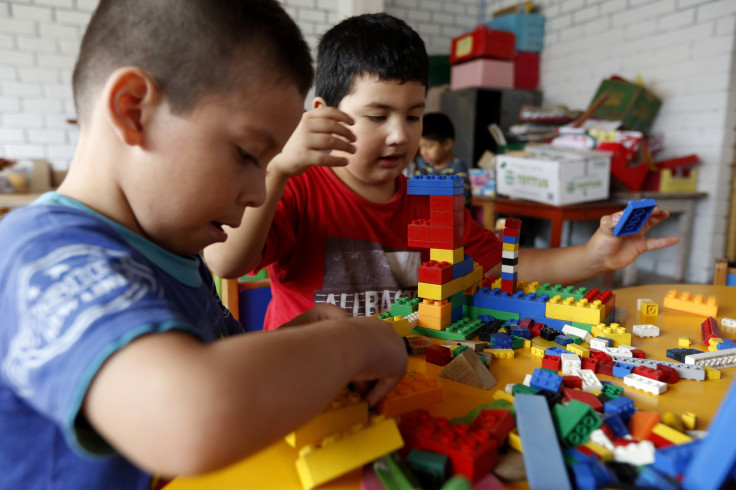What Is Universal Preschool? Biden Plan Gets Praise From Experts
President Joe Biden’s American Families Plan has many parts, but one in particular has been receiving attention: the proposal to provide free preschool to every American. The $200 billion proposal faces steep Republican opposition, but will at the very least silence Biden critics who say the president isn’t ambitious enough.
U.S. citizens are already guaranteed 12 years of free education, and the American Families Plan would add two more to the upper and lower limits of that stretch.
It also contains child care tax credits refunding up to half to expenditures by families making $125,000 annually. Wealthier families would qualify for lesser returns, capping out at an income of $400,000.
“President Biden has made it clear: The days of our nation failing to support and invest in the future of our babies and toddlers are over,” Myra Jones-Taylor, chief policy officer for the early childhood nonprofit Zero to Three, told CNBC. “The president’s proposal is simply unprecedented in the sweep of its policies, and we gladly welcome it.”
In many areas, public preschool is either nonexistent or inaccessible for most families.
Private preschool tuition can approach that of public colleges in some parts of the country. Boston resident Sarah Malk told the Boston Globe that preschool is her family’s largest expense after housing.
“We do spend a lot of money on it, but we consider it an invaluable resource,” she said. “If this allows families who previously couldn’t have it to get it, that would be a really big benefit to them.”

Research has shown that connections and experiences gained during preschool can outweigh the astronomical costs. Teachers notice the difference as well when both preschooled and non-preschooled kids show up for kindergarten.
For the Biden administration, that gap is an opportunity to create a more educated and prepared public. Families in poverty and families of color would be first in line to receive preschool courtesy of the American Families Plan, also giving their parents more time to focus on careers.
“True, this is a lot of money for any nation, even one as affluent as our own. But let me assure anyone who has concerns that every penny will be worth it,” wrote Linda Karges-Bone, and author and professor of education with Charleston Southern University in a Post And Courier op-ed. “So often, we question the reasons that so many other developed nations boast higher levels of literacy and lower incidences of community violence and social malaise. One answer might be their willingness to commit to high-quality, universal preschool to develop every young brain and body in healthy ways."
© Copyright IBTimes 2025. All rights reserved.





















